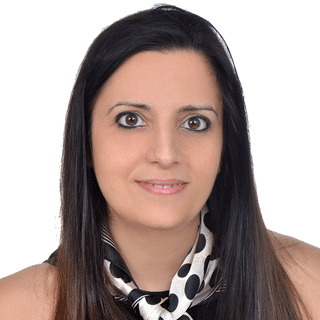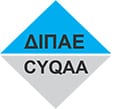
Eirini Vlassi
Visiting Fellow

The MBA in Tourism is accredited by the The Cyprus Agency of Quality Assurance and Accreditation in Higher Education (CYQAA)
The MBA Programme in Tourism provides a general management post graduate and post experience education for those aspiring to or already at senior management level in tourism companies and organizations and equip them to perform effectively in managerial positions. Accordingly, the aim is not only to pursue an academic theoretical study, but rather to enable theory to apply in tourism companies or organizations practice such as programming, organizing and operation aspects of a tourism company. It is a degree which utilizes participants’ work experience, but at the same time instils new skills and provides new knowledge in a real-life business environment. Thus it will develop participants’ ability to make informed decisions about their practice, broaden and deepen understanding of business and management function and processes; foster skills of business research, analysis, synthesis and creativity so as to enhance decision-making and promote organizational well-being within the context of a continually changing and competitive business environment; encourage innovation and awareness of the role of information and technology in innovation; develop awareness of ethical, social, environmental and global issues affecting management decisions in tourism companies.
The MBA in Tourism is a distinctive Programme that encompasses the study of tourism market understanding, leadership, information technology, globalization, strategic planning, and related areas. The program adopts a holistic view of tourism, integrating commercial, technological, financial aspects, and leadership challenges. The Programme curriculum is designed to equip current and future tourism company leaders with the skills, knowledge and tools they need to manage tourism business successfully.
Upon successful completion of the programme, graduates will be able to:
PLO 1: Use a variety of analytical techniques to identify a complex business problem, generate and compare alternatives and develop a solution in the tourism sector.
PLO 2: Implement the appropriate research skills and tools (information technology and / or quantitative analysis) to solve problems in the tourism sector.
PLO3: Integrate their functional knowledge in applied settings (e.g. case analyses, group projects, research papers).
PLO 4: Demonstrate knowledge relating to the concept of value creation and the role played by each functional area of a tourism company.
PLO 5: Define key components of the tourism business operating environment(s) and explain how these components impact organizational performance and decisions.
PLO 6: Argue in professional settings, including: professional presentations and persuasive presentations.
PLO 7: Produce scientifically substantiated professional environmental assessment reports in accordance with the relevant standards.
PLO 8: Cooperate and work effectively with others within the context of multidisciplinary and culturally diverse environments of the tourism sector.
PLO 9: Demonstrate maturity, academic ability and expertise to be employed in the tourism industry straight after.
This is a distance learning Programme. During the academic year, educational meetings are held for each of the courses (compulsory and optional), as follows: six (6) telemeetings of a duration of two hours with the adviser for each course, who is responsible for informing, guiding, advising and evaluating the students. These meetings are primarily aimed at the general support of students as well as in the elaboration, deepening and development of all the courses that the students are studying. The interactivity and formative assessment form part of the learning and teaching methodology. The assignments completed during the semester correspond to 40% of the final grade while the final exam corresponds to 60%. In order for the student to succeed in a course he / she must achieve, in the written assignment as well as the final examination, a grade of at least 50/100.
In the third semester students complete their MBA dissertation which corresponds to 30 ECTS.
| Code | Course title | Course type |
|---|---|---|
| DMBA550 | Accounting and Financial Statement Analysis | Compulsory |
| DMBA561 | Marketing Management & Business Communication | Elective |
| DMBA580 | Leadership and Organizational Behaviour | Elective |
| DMBA500 | Research Methods and Data Analysis | Compulsory |
| DM515 | Digital Marketing | Elective |
| MBA584 | Entrepreneurship and Innovation | Elective |
| Code | Course title | Course type |
|---|---|---|
| DTOUR520 | Tour Operating Management | Compulsory |
| DTOUR530 | Management and Development of Hospitality Business | Compulsory |
| DTOUR550 | Economics of Tourism and Hospitality | Compulsory |
| DTOUR570 | Strategic Destination Management | Compulsory |
| Code | Course title | Course type |
|---|---|---|
| DTOUR500 | Dissertation | Compulsory |
The academic background of each candidate based on his/her previous studies, as well as his/her foreseen ability to conclude successfully the Program are taken into account. The necessary supporting documents to be submitted with the application include:
The University reserves its right to define the electives offered on an academic year basis.
The programme structure may change without prior notice, as a result of quality assurance procedures or/and programme recertification.
Register your interest and one of our admissions consultants will contact you with guidance and additional information.